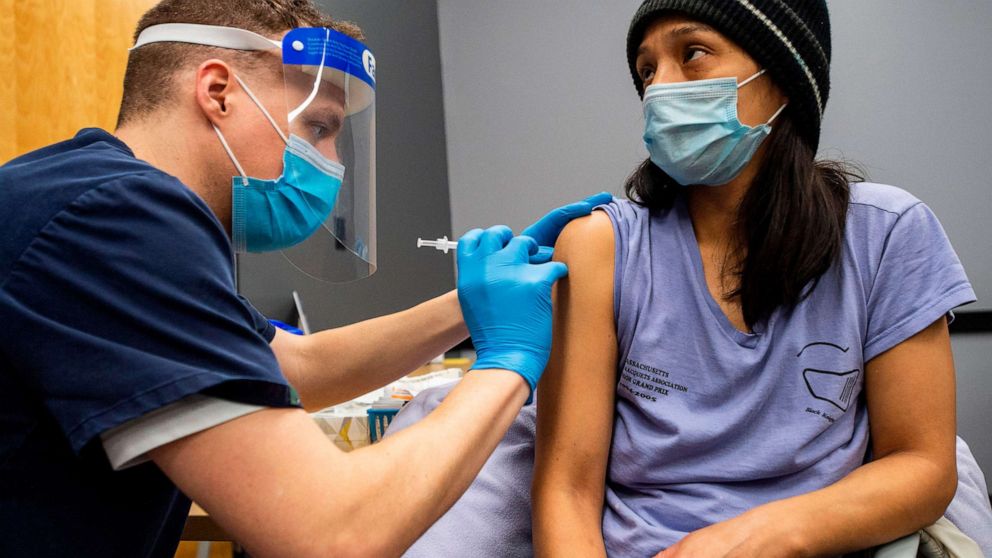 3 things scientists have learned about vaccine hesitancy: Analysis As all U.S. adults become eligible for the COVID-19 vaccine, data collected by the CDC offers a glimpse into which communities show the highest rate of vaccine hesitancy. ABC News
3 things scientists have learned about vaccine hesitancy: Analysis As all U.S. adults become eligible for the COVID-19 vaccine, data collected by the CDC offers a glimpse into which communities show the highest rate of vaccine hesitancy. ABC News As of Monday, all adults in the country -- not just those most vulnerable to the virus -- are eligible to get vaccinated.
But a troubling challenge remains in a country that has access to millions of doses while some nations still have none. A sizable portion of the population has what experts call "vaccine hesitancy." ...
Data collected by the Centers for Disease Control and Prevention (CDC) offers a glimpse into which communities show the highest rates of vaccine hesitancy, bringing a clearer view of how much work needs to be done to vaccinate as many Americans as possible in the coming months. Estimated vaccine hesitancy rates were calculated based on Census Bureau survey data detailing the percentage of adults who described themselves as "probably not" or "definitely not" likely to get a COVID-19 vaccine once one is available to them.
According to an ABC News analysis of the county-level data, vaccine hesitancy is estimated to be higher in rural parts of the country, especially in western states including Wyoming, North Dakota and Idaho, as well as in southern states like Mississippi, Tennessee and Georgia. Hesitancy is also estimated to be higher where COVID-19 cases are the highest -- and in some of the most underserved parts of the country where vaccines are needed the most.
On a positive note, the census data shows that vaccine hesitancy rates have been going down over the past few months, with the percentage of those who are hesitant or strongly hesitant about the vaccine dropping from 21.5% in mid-January to 15.6% in late March.
But as of last month there were still more than a dozen states where more than a fifth of the population was hesitant to get vaccinated due to concerns about side effects and vaccine safety, according to the survey data....
Eight states lead the way in hesitancy, with more than one in every four people estimated to be hesitant about getting vaccinated, according to the data. Wyoming, North Dakota and Mississippi lead the group, with an average of nearly 30% of the population in each county estimated to be hesitant about vaccination, followed by Idaho, Tennessee, Montana, Georgia and Louisiana....
The ABC News analysis is in line with numerous other studies that have shown that people living in red states and in rural states are less willing to receive a vaccine. Early hesitancy in those states contributed to them having a glut of vaccines, which led several of them to become the first states in the nation to open up vaccines to the broader population.
On average, data from the smaller, largely rural counties that former President Donald Trump won during the 2020 presidential election shows that about 20% of adults are on the fence about being vaccinated -- which is about three percentage points higher than the number of vaccine-hesitant adults in larger, more populated counties that voted for President Biden. ...

